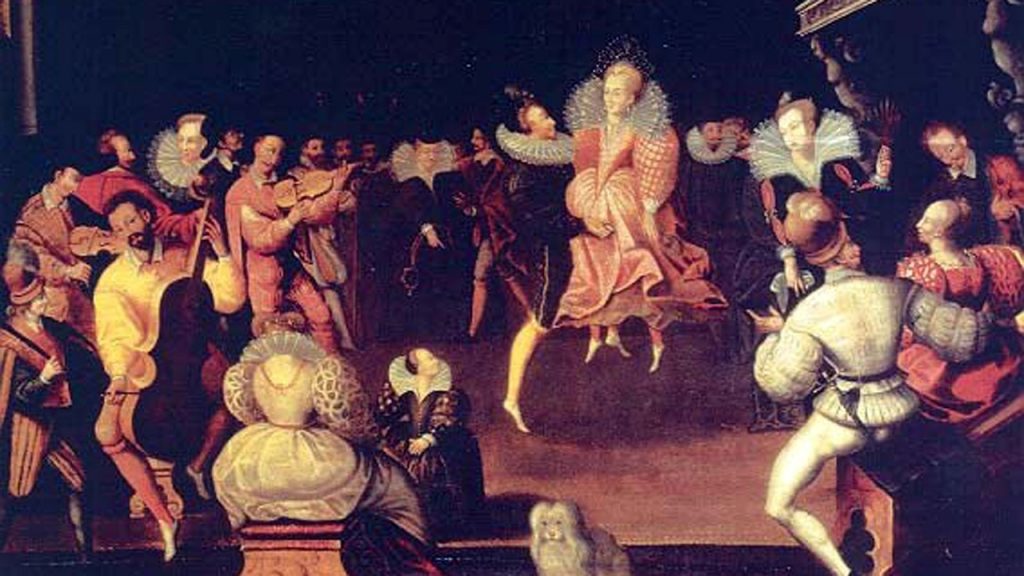Go back in time for this birthday: Michael Praetorius, born Feb. 15

These high-kicking figures are likely dancing to Praetorius.
When I really need music to soothe my mind and take me to another place, this is the guy I turn to: Michael Praetorius. A composer who straddled both the Renaissance and Baroque eras, he was born Michael Schultz, which is German for “mayor”. It was custom to use a Latinized form of your family name, with “Praetor” referring to a Roman official.
Most classical music presenters and performers perform music from the Classical era (1775-1825) and onwards, whereas music from the Baroque (1600-1750) period and earlier are performed by groups that specialize in early music. When I hear music that predates the Classical era, it takes me back in time the way no other era can. The son of a Lutheran pastor, Praetorius became a versatile composer and music theorist after studies as an organist. His development of music based on Protestant hymns was in part an effort to improve relations between the Protestants and Catholics. He wrote music depending on who was in charge of the courts (be it a duke, duchess, elector of Saxony, etc.) so he was writing either lots of church music or lots of festive music.
Praetorius was famous as a music academic and took on the arduous task of compiling an encyclopedic record of contemporary musical practices which wasn’t notated before. Most music was written without specifying which instruments were required; little flourishes and personal touches common in performance practice were not written down, either. (This effort reminds me of all the work Julia Child, Simone Beck, and Louisette Bertholle put into writing down all the recipes for “Mastering The Art of French Cooking” for Americans). Another interesting thing about Praetorius was his choral compositions were written for several small choirs placed throughout the church for that “surround sound” effect.
A committed Christian, Praetorius, he expressed his regrets for not taking holy orders but based on what he contributed to music, religious and otherwise, I’m sure he gained entrance when he got to the pearly gates.
Featured video is Dramma per music Guédron: Grand Bal à la cour d’Henri IV, which is made up of a large group of stylized pieces for dancing at the king’s court.
Michael Praetorius was likely born February 15, 1571 in present-day Thuringia, Germany and died February 15, 1621 in Wolfenbüttel, Germany.











